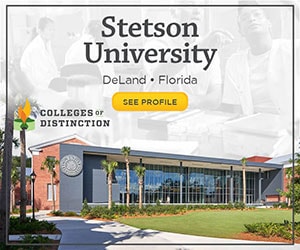The Trend Toward Holistic Education in American Universities
When American universities first began, they were structured with an emphasis on holistic education. Recent decades, however, then saw a major shift to a knowledge-based economy, prompting the “college experience” to focus on building more specialized skills for well-paying jobs. However, the pendulum is beginning to swing back to general “horizontal” education rather than specific “vertical” education.
Holistic Education
Students now are not only searching for a university to grow them intellectually, but they are also searching for a university that will develop them holistically: emotionally, spiritually, and intellectually.
Additionally, more and more companies are looking to hire individuals with just as strong EQs (Emotional Quotients, or their ability to recognize and relate to other people’s emotions) as they are individuals with high IQs (Intelligence Quotient, the test that supposedly quantifies a person’s intelligence based on a series of questions).
The reason for this is simple: graduates who exhibit skills in a diverse grouping of areas are more adaptable in the workplace, making them a strong asset to prospective employers.
For instance, an engineer with a strength in writing and communication who can not only number-crunch, but also deliver an engaging presentation to a board of potential clientele, would make any company proud.
Communication is Key
An area of strong emphasis in the liberal arts education is communication. Whether that be verbal communication or communication using the written word, universities and companies alike are beginning to recognize the importance of such a skill.
Consider the concept of “ethos” when attempting to establish rapport with a future client. Now, imagine these two brief email scenarios:
Client’s question: “I’m working on a home electrical issue. Can you give me an estimate on your company’s costs?”
Company 1 Reply: “Where’s the problem at in the house and I’ll tell you how much for the cost.”
Company 2 Reply: “We’d love to be of service. What seems to be the problem? That will give us a clearer idea of your cost breakdown.”
Both responses technically communicate the same thing, and both companies may be completely competent at their work. In fact, Company 1 may even be better at their work.
However, when presented with both responses, which company do you think the client will choose?
That’s right: the company with which they feel is more competent, due to their brief but clear communication style. They instill confidence.
That is one of the goals of the core curriculum: to help students achieve clarity of communication regardless of major.
Everything in Perspective
A growing desire of students in particular is to better understand the world around them from a perspective broader than the one they grew up with. A liberal arts education can help provide that.
For instance, in the honors college at John Brown University, students have the opportunity to take what are known as colloquia courses. In these one-hour courses (designed so that, no matter how heavy the student course load is, they are still able to participate), students can take such classes as International Cinema, Service and Community, the Monastic Life, and Slavery Narratives, to name a few.
In these courses, students from English to Engineering can delve into worlds of study with which they may not otherwise interact.
Students who take these courses not only begin to see layers in which their spheres of study influence others, but it also sparks in them a curiosity to see things from another point of view.
In future careers of teaching or even city design and management, a propensity to see things from multiple points of view can be extremely important.
A common university core, while it may seem frivolous or unimportant to some, are growing a new generation of students into stronger “whole” people, who not only have a strength in their personal field of study (vertical education), but also have the power of a multifaceted education outside their chosen field (horizontal education).
John Brown University |
SILOAM SPRINGS, ARKANSAS |
| John Brown University is a private Christian university, ranked first among Southern regional colleges and a Best Value by U.S. News & World Report and is listed as one of America’s Best Colleges by Forbes. JBU enrolls more than 2,800 students from 42 states and 40 countries. JBU is committed to providing quality academics within a distinctly Christian community and is a vibrant and growing university of the arts, sciences, and professions. |





